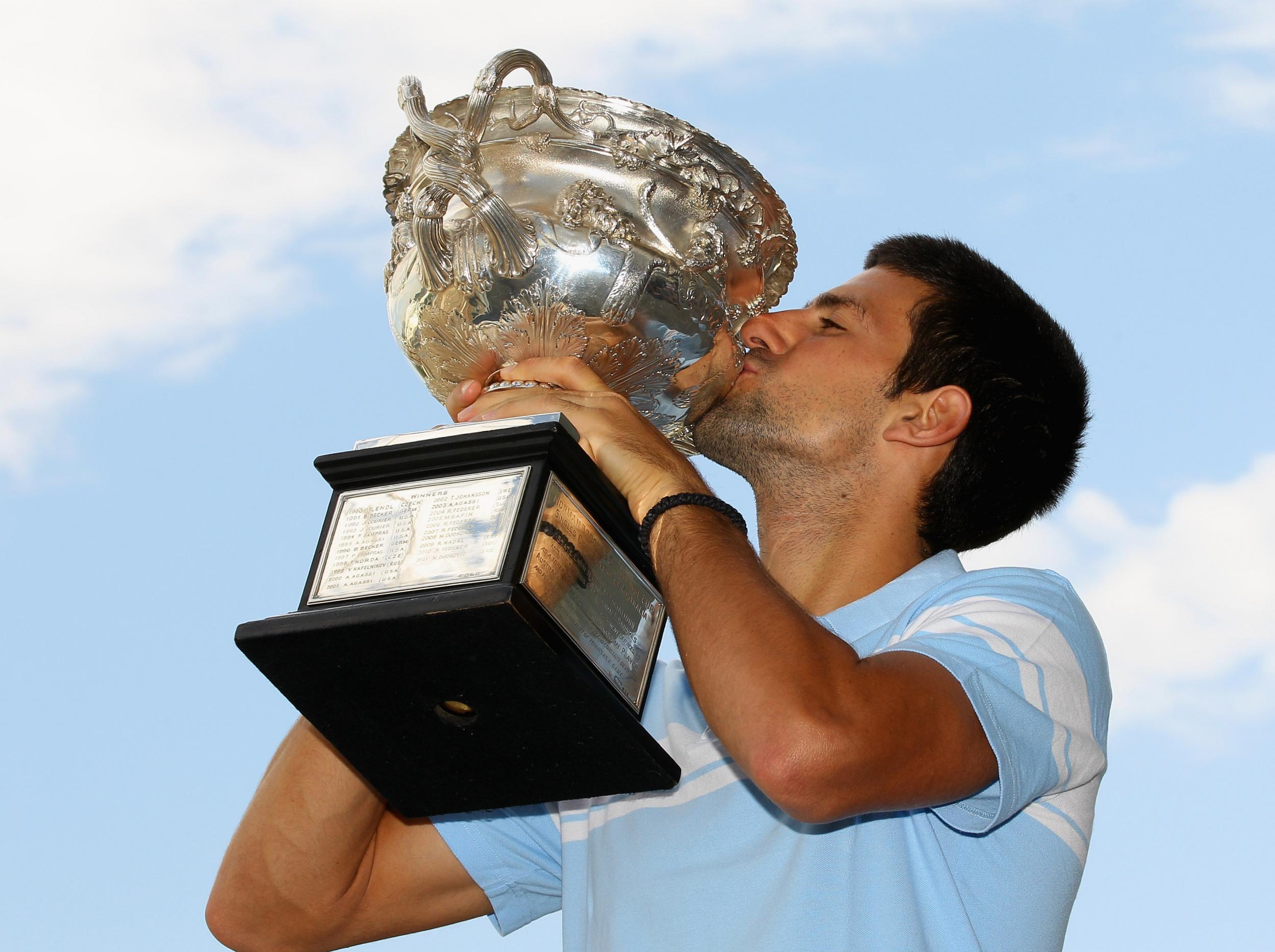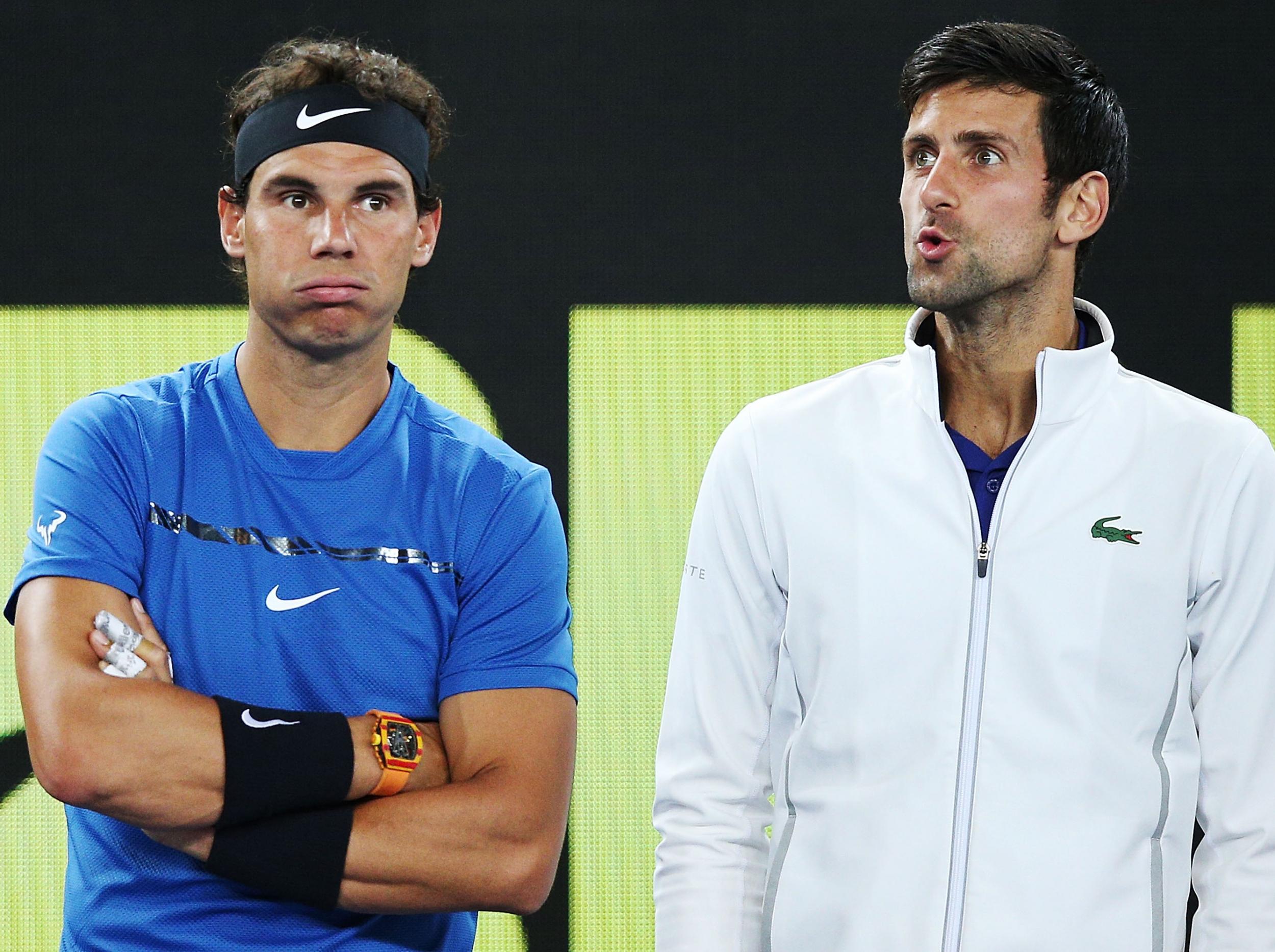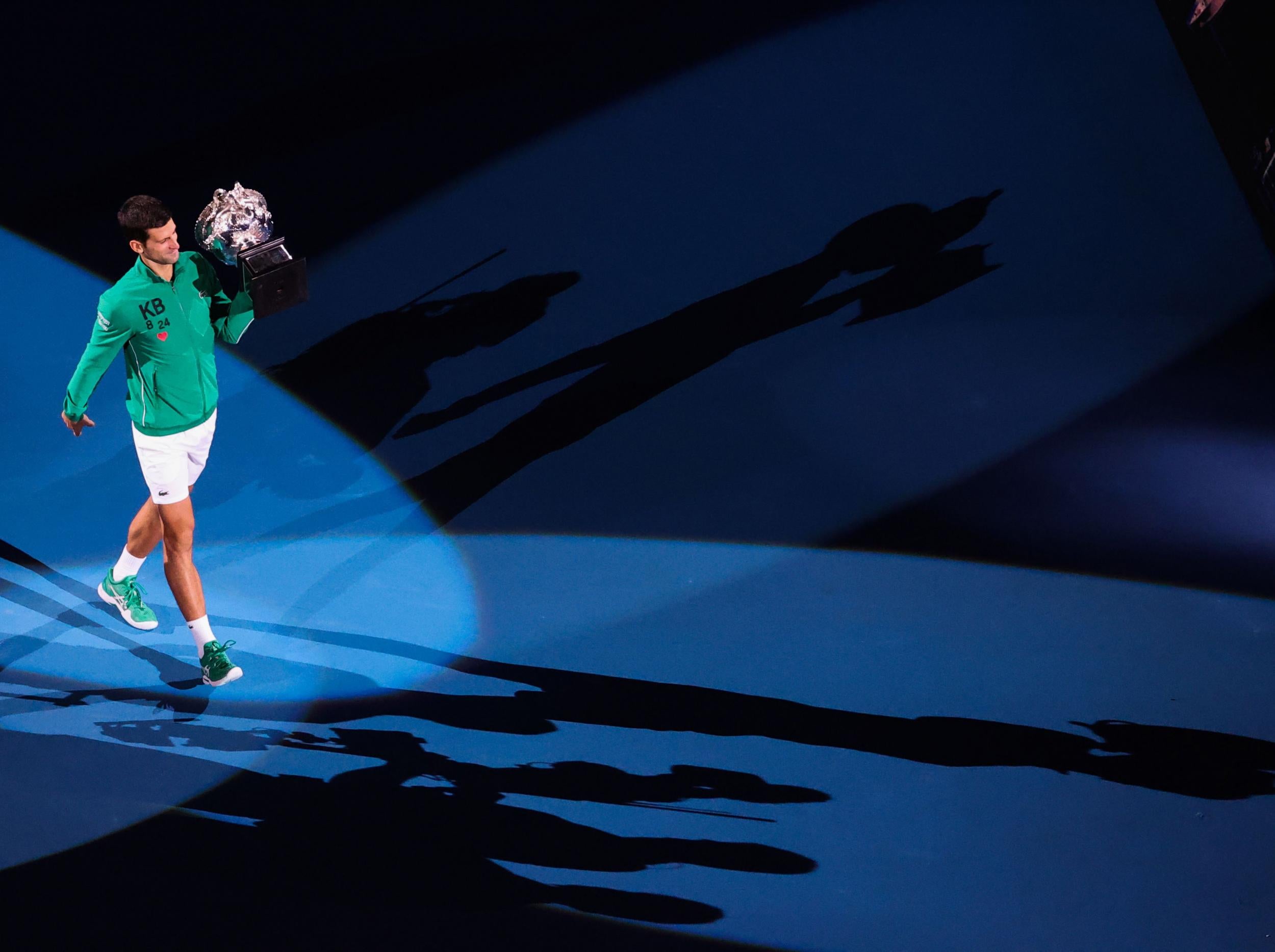Why Novak Djokovic is the player men’s tennis desperately needed but never particularly wanted
Djokovic has long been viewed as the equal of Roger Federer and Rafa Nadal on the court. So what is it that has prevented him from equalling or eclipsing the connection with fans of the sport?

Your support helps us to tell the story
From reproductive rights to climate change to Big Tech, The Independent is on the ground when the story is developing. Whether it's investigating the financials of Elon Musk's pro-Trump PAC or producing our latest documentary, 'The A Word', which shines a light on the American women fighting for reproductive rights, we know how important it is to parse out the facts from the messaging.
At such a critical moment in US history, we need reporters on the ground. Your donation allows us to keep sending journalists to speak to both sides of the story.
The Independent is trusted by Americans across the entire political spectrum. And unlike many other quality news outlets, we choose not to lock Americans out of our reporting and analysis with paywalls. We believe quality journalism should be available to everyone, paid for by those who can afford it.
Your support makes all the difference.What do you think of Novak Djokovic? What do you really think of him?
“I hope he’s found to have taken performance-enhancing drugs, so when he overtakes Federer’s Grand Slam record, it’s kind of dismissed.”
That’s what one tennis fan had to say this week after Djokovic eliminated Roger Federer from the Australian Open at the semifinal stage.
It is without a doubt an extreme take, but an extreme take on a common feeling.
Another fan, who even identified Djokovic as his favourite player, said he still believed Federer to be the greatest of all time, and wanted that to be reflected in number of the two players’ Grand Slam wins at the end of their careers. He wanted Federer to finish with more.
Djokovic’s ex-coach, former world No. 1 and six-time major winner Boris Becker, spoke last year about the Serb’s dismay as to why he couldn’t break that tempered glass ceiling of Federer-level adoration.
Becker admitted the 32-year-old was once “bothered” by the disparity in appreciation, acknowledging this off-court insecurity — which contrasts so starkly with the player’s on-court tenacity, — just days before Djokovic’s historic Wimbledon final against Federer. When Nole emerged the winner of the tournament’s first ever match-deciding, title-confirming fifth-set tiebreak, disappointment diffused throughout tennis clubs, sports bars and living rooms around the world.
Never mind the fact Djokovic had just gone 3-0 in Wimbledon finals against the All England Club’s greatest ever guest. Never mind the startling athletic accomplishment by the best tennis player of the last 10 years — it wasn’t Federer, therefore, for many, it wasn’t worthy of applause.
Even at the Australian Open, where the Serb is the most successful men’s player ever, the comparative admiration for Djokovic’s inevitable straight-sets semi-final victory over Federer on Friday was detracted from by disappointment that the vulnerable, vanquished Swiss would not extend his Grand Slam title record.
It is universally known that Federer is the most beloved tennis player of all time, and while suggesting Djokovic deserves to be more popular or more adored than him would be futile, it is also not the point. The 38-year-old Swiss has largely been as graceful an ambassador for the sport as he is a player when stroking one of those picturesque shots that seem to have come out of some seminal textbook on how one ought to play tennis.
But the giddiness that flows through spectators when they witness a literal stroke of Federer’s genius has somewhat flooded out consideration for Djokovic’s contributions to the game in the last decade.
Before Djokovic lifted the men’s singles trophy in Rod Laver Arena on 30 January 2011, he had one major to his name. Federer, meanwhile, had 16, and Rafael Nadal had 9.
But that fateful day in January would change Djokovic’s career irreversibly, as well as the state of men’s tennis. As of Sunday, the tallies read as follows: Federer on 20, Nadal on 19 and Djokovic with 17.

The latter’s searing success has been necessary for the competitiveness and growth of men’s tennis, but maybe no one wanted that after all.
It was fine for a while, but as soon as it threatened Federer’s pre-paved path to an isolated podium of greatness, it started to irk the fairweather followers as much as the Federer followers, though the two groups can understandably be indistinguishable at the best of times.
Federer’s first great rival, Rafael Nadal, has also been mounting a similar assault on the Swiss’ Slam record for the better part of 15 years, but that has always been more welcome in the eyes of most fans, possibly due to the awe of the Spaniard’s passionate play and punishing ground strokes. Who could forget a young Nadal’s tear and sweat-soaked celebration in the July twilight as he dethroned Federer at Wimbledon in 2008, a romancing moment, the like of which has evaded Djokovic despite his multiple major honours.
In fact, the detriment to Nadal’s success that Djokovic’s winning ways inflicted seemed to eventually frustrate the more casual fan, too. Indeed, there was a period in 2011 and 2012 in which simply stepping on court with Nadal almost guaranteed Djokovic a win, even on the clay surface seemingly designed specifically for the Spaniard. Impressive of Djokovic, or irritating?

Nole may not possess Roger’s grace or Rafa’s flair, but if you combine the former’s court IQ and the latter’s resilience, you’re some way towards creating a player in the steely Serb’s mould.
So while Djokovic is now viewed in the same echelon as those two giants of the sport in a competitive sense, what is it that has prevented him from equalling or eclipsing their connection with fans?
Could it be the (admittedly too frequent) mid-match withdrawals early in his career? The pomposity of his parents and their interjections between points? Again, a staple of Djokovic’s first few years on courts as a pro.
Is it the ATP Player Council leader’s views on equality between men and women in the sport, which actually approach validity but stumble in somewhat awkwardly?
Could it even be the lack of humorous impressions, those that defined Djokovic in his early years? Maybe, maybe not; the tennis world’s mixed feelings towards live wire Nick Kyrgios show that fans, players and officials have never been certain where they stand on characters in this most noble of sports.
Most of the above, however, point to a player that has grown with time, when Federer and Nadal never needed to. It could be said that makes him more human, even if there is a tendency to view him as anything but that.
Although tennis’ ‘Iron Man’ seems to be the least relatable of the Big Three in terms of his physical capabilities, mentally he is surely the closest to you or I as any of them.
Perhaps Djokovic should have rolled over on Sunday and let Dominic Thiem — already 26 — become the first of the ‘NextGen’ to win a major. Maybe that would have gone some way to improving his standing in the estimation of a large portion of tennis fans around the world, even the majority in attendance at Melbourne Park — who Djokovic loves more than any other group of supporters, but who were audibly very much pro-Thiem. One can’t help but assume who fans would have been rooting for if it had been Federer standing across the net from the Austrian, though.

Either way, a greedy Djokovic instead sought more gold; he employed that mental acuity to make adjustments, he called on that trademark tenacity to battle from behind, and he earned a record-extending eighth Australian Open title to regain the world No. 1 spot.
As his overall haul closes in on Federer’s, it seems the most cynical, disappointed observers can only dream of a bolt from the blue to derail the most important player of the last 10 years.
But it seems a more straightforward option would simply be to appreciate what Djokovic brings to the sport: competitiveness and a misunderstood humanity.
Join our commenting forum
Join thought-provoking conversations, follow other Independent readers and see their replies
Comments